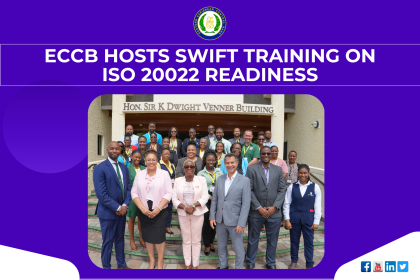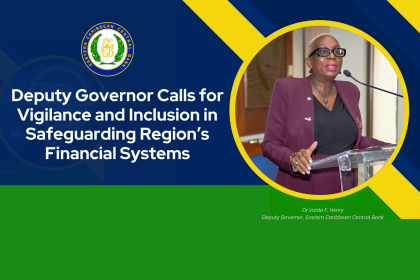
ADVISORY: Jurisdictions With Anti-Money Laundering and Countering the Financing of Terrorism Deficiencies
This Advisory is being issued to inform Licensed Financial Institutions (LFIs) under the Banking Act 2015, to enable them to take the following information into consideration in their business activities. This Advisory relates to foreign jurisdictions with anti-money laundering and countering the financing of terrorism (AML/CFT) deficiencies and includes (i) High-risk jurisdictions subject to a call for action and (ii) jurisdictions under increased monitoring due to strategic deficiencies.
PART I - HIGH RISK JURISDICTIONS SUBJECT TO A CALL FOR ACTION - OCTOBER 2022
In October 2022, the FATF issued a public statement[1] on high risk jurisdictions. High-risk jurisdictions have significant strategic deficiencies in their regimes to counter money laundering, terrorist financing, and financing of proliferation (ML/TF/PF). For all countries identified as high-risk, the FATF calls on all members and urges all jurisdictions to apply enhanced due diligence, and, in the most serious cases, countries are called upon to apply counter-measures to protect the international financial system from the ML/TF/PF risks emanating from these countries.
1. DEMOCRATIC PEOPLE'S REPUBLIC OF KOREA (DPRK)
[unchanged since February 2020]
The FATF remains concerned about the DPRK's failure to address the significant deficiencies in its AML/CFT regime and the serious threats they pose to the integrity of the international financial system. The FATF urges the DPRK to immediately and meaningfully address its AML/CFT deficiencies. Further, the FATF has serious concerns with the threat posed by the DPRK's illicit activities related to the proliferation of weapons of mass destruction (WMDs) and its financing.
The FATF reaffirms its 25 February 2011 call on its members and urges all jurisdictions to advise their financial institutions to give special attention to business relationships and transactions with the DPRK, including DPRK companies, financial institutions, and those acting on their behalf. In addition to enhanced scrutiny, the FATF further calls on its members and urges all jurisdictions to apply effective counter-measures, and targeted financial sanctions in accordance with applicable United Nations Security Council Resolutions, to protect their financial sectors from ML, TF and weapons of mass destruction (WMD) PF risks emanating from the DPRK. Jurisdictions should take necessary measures to close existing branches, subsidiaries and representative offices of DPRK banks within their territories and terminate correspondent relationships with DPRK banks, where required by relevant United Nations Security (UNSC) resolutions.
LFIs can access the UNSC consolidated list here: https://scsanctions.un.org/search/
2. IRAN
[unchanged since February 2020]
In June 2016, Iran committed to address its strategic deficiencies. Iran's action plan expired in January 2018. In February 2020, the FATF noted Iran has not completed the action plan.
In October 2019, the FATF called upon its members and urged all jurisdictions to: require increased supervisory examination for branches and subsidiaries of financial institutions based in Iran; introduce enhanced relevant reporting mechanisms or systematic reporting of financial transactions; and require increased external audit requirements for financial groups with respect to any of their branches and subsidiaries located in Iran. Given Iran's failure to enact the Palermo and Terrorist Financing Conventions in line with the FATF Standards, the FATF fully lifts the suspension of counter-measures and calls on its members and urges all jurisdictions to apply effective counter-measures, in line with Recommendation 19.
Iran will remain on the FATF statement on High Risk Jurisdictions Subject to a Call for Action until the full Action Plan has been completed. If Iran ratifies the Palermo and Terrorist Financing Conventions, in line with the FATF standards, the FATF will decide on next steps, including whether to suspend countermeasures. Until Iran implements the measures required to address the deficiencies identified with respect to countering terrorism-financing in the Action Plan, the FATF will remain concerned with the terrorist financing risk emanating from Iran and the threat this poses to the international financial system.
LFIs are asked to pay special attention to individuals and entities connected to these jurisdictions. It should be noted that it is an offence for a financial institution to engage in any transactions with persons or entities declared specified entities or proliferation entities, suspected of being engaged in the proliferation of weapons of mass destruction.
Where a financial institution is unable to satisfy itself that a transaction is not related to the financing of terrorism or the financing of the proliferation of WMD, then consideration should be given to terminating the transaction and reporting without delay to the relevant authorities.
3. MYANMAR
In February 2020, Myanmar committed to address its strategic deficiencies. Myanmar’s action plan expired in September 2021.
In June 2022, the FATF strongly urged Myanmar to swiftly complete its action plan by October 2022, or the FATF would call on its members and urge all jurisdictions to apply enhanced due diligence to business relations and transactions with Myanmar. Given the continued lack of progress and the majority of its action items still not addressed after a year beyond the action plan deadline, the FATF decided that further action was necessary in line with its procedures and FATF calls on its members and other jurisdictions to apply enhanced due diligence measures proportionate to the risk arising from Myanmar. When applying enhanced due diligence measures, countries should ensure that flows of funds for humanitarian assistance, legitimate NPO activity and remittances are not disrupted.
Myanmar should continue to work on implementing its action plan to address these deficiencies, including by:
- demonstrating an improved understanding of ML risks in key areas;
- demonstrating that on-site/offsite inspections are risk-based, and hundi operators are registered and supervised;
- demonstrating enhanced use of financial intelligence in LEA investigations, and increasing operational analysis and disseminations by the FIU;
- ensuring that ML is investigated/prosecuted in line with risks;
- demonstrating investigation of transnational ML cases with international cooperation;
- demonstrating an increase in the freezing/seizing and confiscation of criminal proceeds, instrumentalities, and/or property of equivalent value;
- managing seized assets to preserve the value of seized goods until confiscation; and
- demonstrating implementation of targeted financial sanctions related to PF.
The FATF urges Myanmar to work to fully address its AML/CFT deficiencies and Myanmar will remain on the list of countries subject to a call for action until its full action plan is completed.
PART 2 - JURISDICTIONS UNDER INCREASED MONITORING DUE TO STRATEGIC DEFICIENCIES IN THEIR AML/CFT REGIMES
FATF Statement of October 2022 on Jurisdictions under increased monitoring
Jurisdictions under increased monitoring are actively working with the FATF to address strategic deficiencies in their regimes to counter money laundering, terrorist financing, and proliferation financing. When the FATF places a jurisdiction under increased monitoring, it means the country has committed to resolve swiftly the identified strategic deficiencies within agreed timeframes and is subject to increased monitoring.
The FATF and FATF-style regional bodies (FSRBs) continue to work with the jurisdictions below as they report on the progress achieved in addressing their strategic deficiencies. The FATF calls on these jurisdictions to complete their action plans expeditiously and within the agreed timeframes. The FATF welcomes their commitment and will loosely monitor their progress. The FATF does not call for the application of enhanced due diligence measures to be applied to these jurisdictions, but encourages its members and all jurisdictions to take into account the information presented below in their risk analysis.
The FATF identifies additional jurisdictions, on an on-going basis, that have strategic deficiencies in their regimes to counter money laundering, terrorist financing, and proliferation financing. A number of jurisdictions have not yet been reviewed by the FATF or their FSRBs, but will be in due course.
Since the start of the COVID-19 pandemic, the FATF has provided some flexibility to jurisdictions not facing immediate deadlines to report progress on a voluntary basis. The following countries had their progress reviewed by the FATF since June 2022: Albania, Barbados, Burkina Faso, Cambodia, Cayman Islands, Haiti, Jamaica, Jordan, Mali, Myanmar, Nicaragua, Pakistan, Panama, Philippines, Senegal, South Sudan, Turkey, UAE and Uganda.
The FATF’s publication on the jurisdictions under increased monitoring can be found on the FATF’s website as follows: https://www.fatf-gafi.org/publications/high-risk-and-other-monitored-jurisdictions/documents/increased-monitoring-october-2022.html
LFIs are required to pay special attention to individuals and entities connected to these jurisdictions, and are required to implement enhanced scrutiny to transactions or banking relationships.
Please be guided accordingly.
[1] First adopted in February 2020






